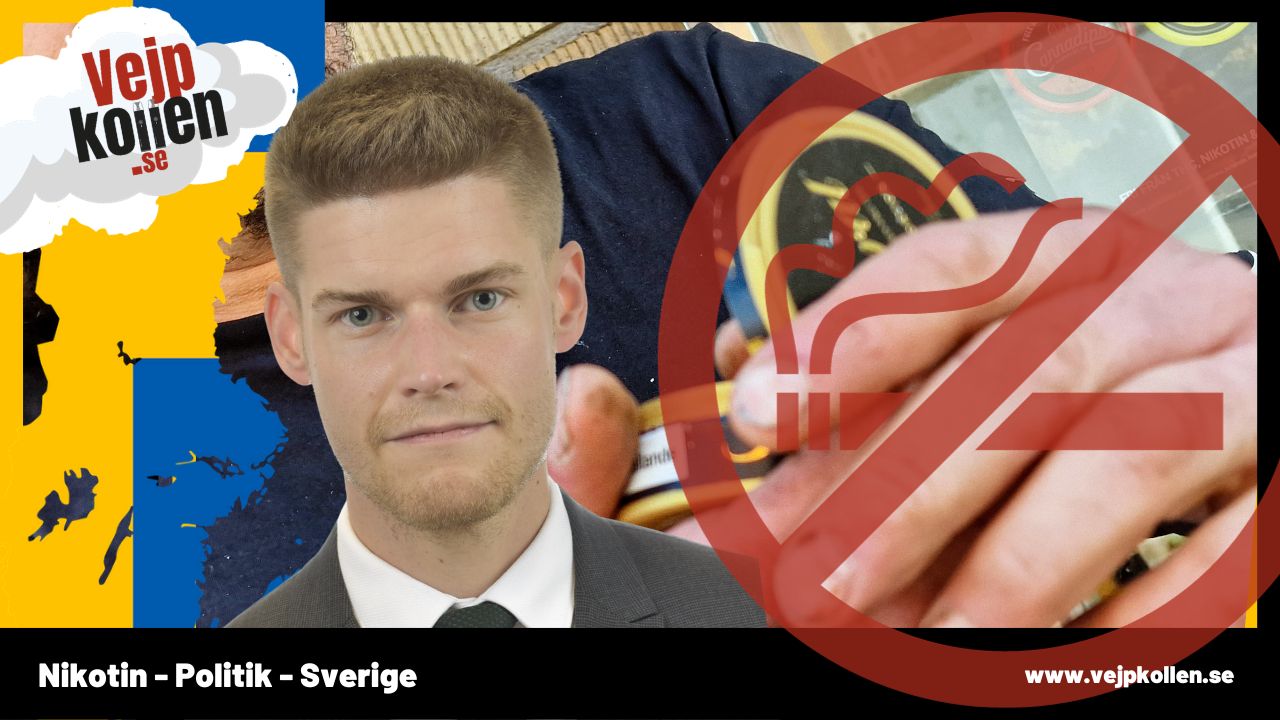The tax on snus will be reduced by 20 per cent by the end of next year. But for Oliver Rosengren (m), this is only a partial victory. Last autumn, he proposed a much more radical reduction of the snus tax, as well as a total abolition of the tax on tobacco-free snus.
"Snusers will still pay far too much in relation to the harm caused by snus. But politics is about taking small steps at a time." he tells Vejpkollen.
As Vejpkollen previously reported, the centre-right government will reduce taxes on traditional snus by 20 per cent.t. In practice, this means that a can of snus will cost SEK 4 less per can from November 2024. At the same time, the price of a pack of cigarettes will be increased by about SEK 4 per pack. The proposal has received both praise and criticism, and has been called everything from a concession to the tobacco companies to a victory for public health. But for Oliver Rosengren it is more about fairness and that taxes should be based on evidence and knowledge.
"I tabled my motion after informing myself about the true cost of snus to society. It is clear that the cost of snus in Sweden is five times lower than the tax the state collects from snus sales. It is neither reasonable nor fair that snus users pay for something that they do not cause" says Oliver Rosengren to Vejpkollen.
"The alternative is usually cigarettes"
Part of the criticism of the tax cut is that it will attract more people to snus, and that this would have negative consequences for public health. But Oliver Rosengren argues that the effect will be the opposite.
"Those who say this tend to equate nicotine use in the form of snus with no nicotine use at all. This is not how it works in reality, unfortunately. The best thing would be not to use nicotine at all. But at the same time, we must realise that the alternative to snus, for many Swedes, is cigarettes. We must always have a realistic view of this."
No mention of e-cigs - yet
As recently as the beginning of the year, the tax on snus was increased by 3 per cent - something that the reduced tax is more than offsetting. At the same time, taxes on other harm minimisation products were raised, in particular e-liquid, by almost 500 per cent just last year. Oliver Rosengren is not averse to taking a closer look at taxes there either, even if it is not currently on the agenda.
"It is not as easy to argue in favour of a tax reduction on e-cigarettes and e-liquid. In the case of snus, we have access to very detailed studies on tax revenues versus health costs. We don't have that for e-cigarettes. At least not yet. Otherwise, I am always in favour of any proposal to bring harm minimisation into the policy. I don't think we should tax products that have the potential to lead to health benefits in the future."
Want to see more evidence in the EU and WHO
The reduced snus tax will come into effect in November 2024 At the same time, several stakeholder organisations warn of a "slippery slope". sharply increased taxes on nicotine pouches, a sister product to snus. The EU's forthcoming revision of the Tobacco Products Directive and the a possible minimum tax on nicotine products.
But also WHO Global Tobacco Convention, to be revised in the autumn, is expected to revolve around guidelines that run counter to the emerging policy on tobacco and harm reduction in Sweden. Oliver Rosengren hopes that the discussion in the EU and the WHO will move from being more moralistic to more evidence-based.
"I hope they see this from a longer perspective. We have almost eradicated smoking in Sweden with the help of snus and I think it is more reasonable to discuss social benefits instead of unnecessary and unjustified restrictions. Not least within the EU, WHO and the tobacco convention", he says to Vejpkollen.





There is no reason whatsoever not to reduce or remove the tax on e-juice either. Why do bourgeois governments always have to appoint Christian Democrats to the post of Minister of Public Health? It would be better if Mattias Svensson or Edward Blom got it instead:)